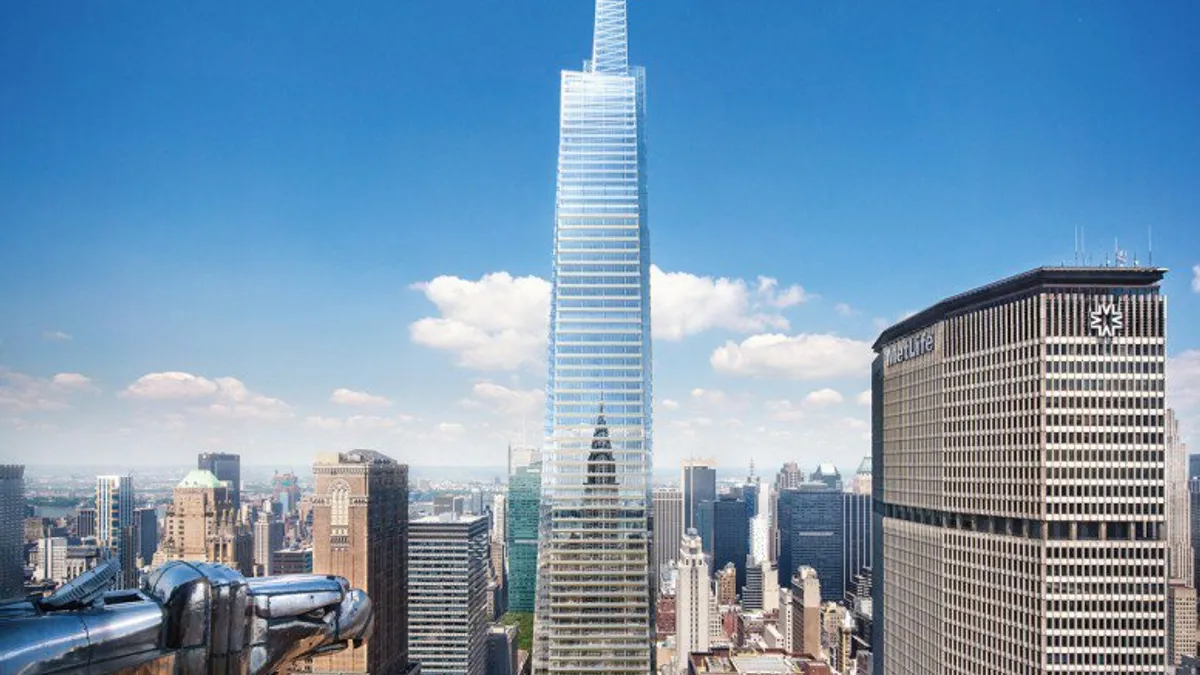Dive Brief:
- The developer of the $3 billion One Vanderbilt office tower under construction in Manhattan next to Grand Central Station said Monday that it might use the EB-5 visa program to raise more than $200 million to help cover construction costs, according to The Real Deal.
- SL Green Realty made the statement during its annual investor conference call, labeling the EB-5 program as an "interesting, incrementally positive source of financing." If SL Green pursues this line of funding, it would add to the $1.5 billion construction loan the company secured from Wells Fargo last year and the $525 million it received in January from one of its minority stakeholders, the National Pension Service of Korea.
- The EB-5 program, which has been used to fund other Manhattan projects, like some of those within the 26-acre, multi-billion-dollar Hudson Yards development, is a vehicle for foreign nationals to earn priority processing of their green card applications by investing between $500,000 and $1 million into a qualified business or real estate project.
Dive Insight:
The EB-5 program expired in September 2015 but has been on the receiving end of short-term extensions since then. The latest program extension is set to expire Dec. 8, but, according to National Real Estate Investor, the EB-5 market is still very active, and the industry expects Congress to push back its expiration date once again.
Although China has been the main source of investors for EB-5 projects so far, experts told National Real Estate Investor that the Chinese market has started to wane. Instead, developers have increased their efforts in Latin America, India and the Middle East.
One factor that is likely holding up a congressional commitment to a long-term extension are some high-profile cases of EB-5 program abuse. One such example is that of Seattle developer Lobsang Dargey, who pleaded guilty in January 2017 to spending EB-5 investment funds on personal luxury items.
Authorities also accused Dargey of shifting program funds to unqualified projects, misleading EB-5 officials and investors about his financial situation and illegally guaranteeing green cards in exchange for investments. In August, Dargey, who has already agreed to pay $24 million in restitution, was sentenced to four years in prison.
Last month, according to The Real Deal, the One Vanderbilt project hit a bump when one of its subcontractors, Navillus Tile, filed for bankruptcy. A judge ordered the company to pay $76 million into union funds after it allegedly set up two non-union companies to do the work and to avoid making union payments. General contractor AECOM Tishman terminated Navillus' contract but ordered the company to continue work.













